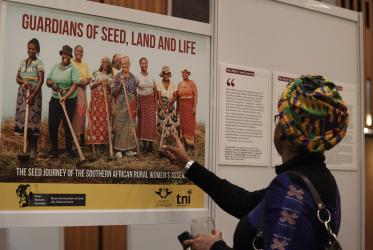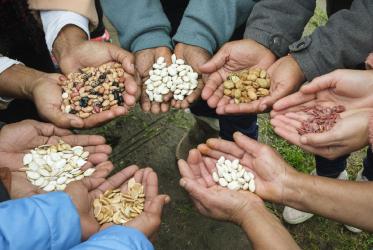Displaying 1 - 20 of 620
WCC expresses deep concern for human rights in Haiti
28 March 2024
Compendium of Promising Practices of African Faith Community Interventions against Paediatric and Adolescent HIV
Executive Summary
23 March 2024
In Angola, WCC takes human rights approach to obstetric fistula
01 February 2024
WCC webinar explores decolonizing beauty
11 December 2023
As floods rage in eastern Africa, church acts to save the people
22 November 2023
Beginning soon: 16 Days against Sexual and Gender-Based Violence
21 November 2023
World Council of Churches plans pilgrimage to Marshall Islands
09 November 2023
WCC guide raises awareness of obstetric fistula
26 October 2023
A Guide for Churches on the Prevention of Obstetric Fistula
26 October 2023
World Council of Churches hosts "Guardians of seeds" exhibition
18 October 2023


















